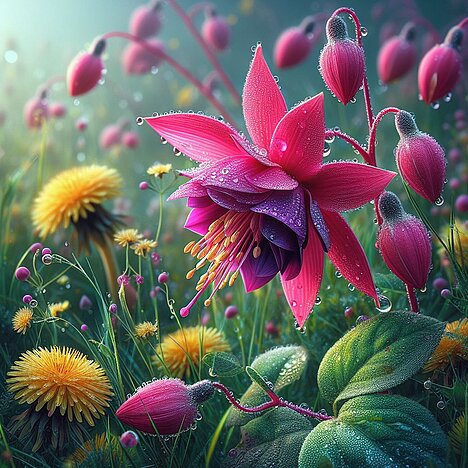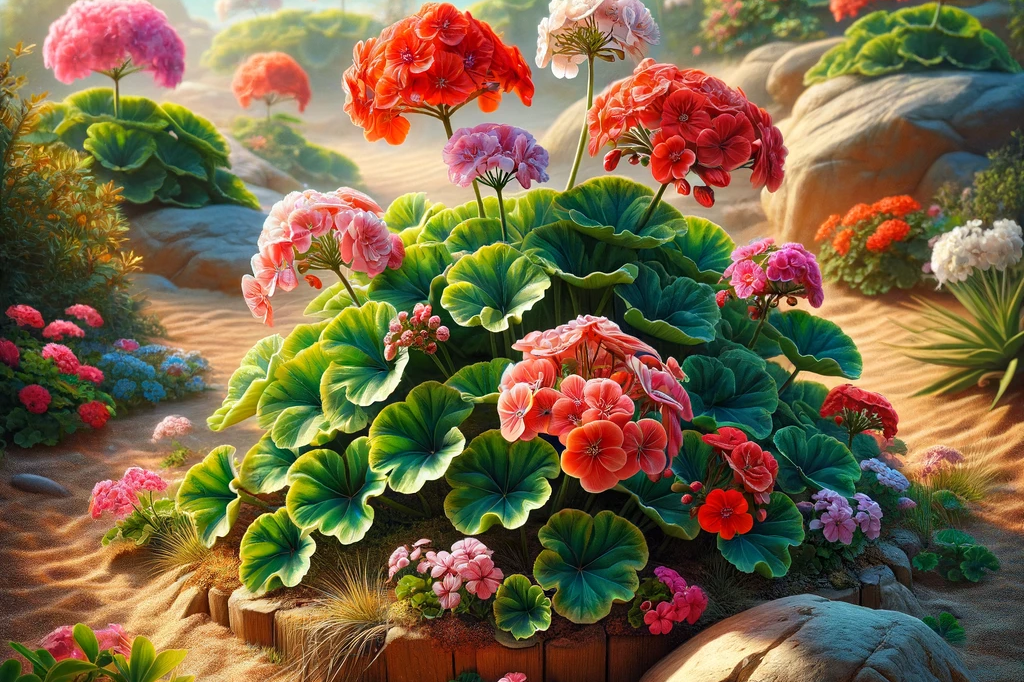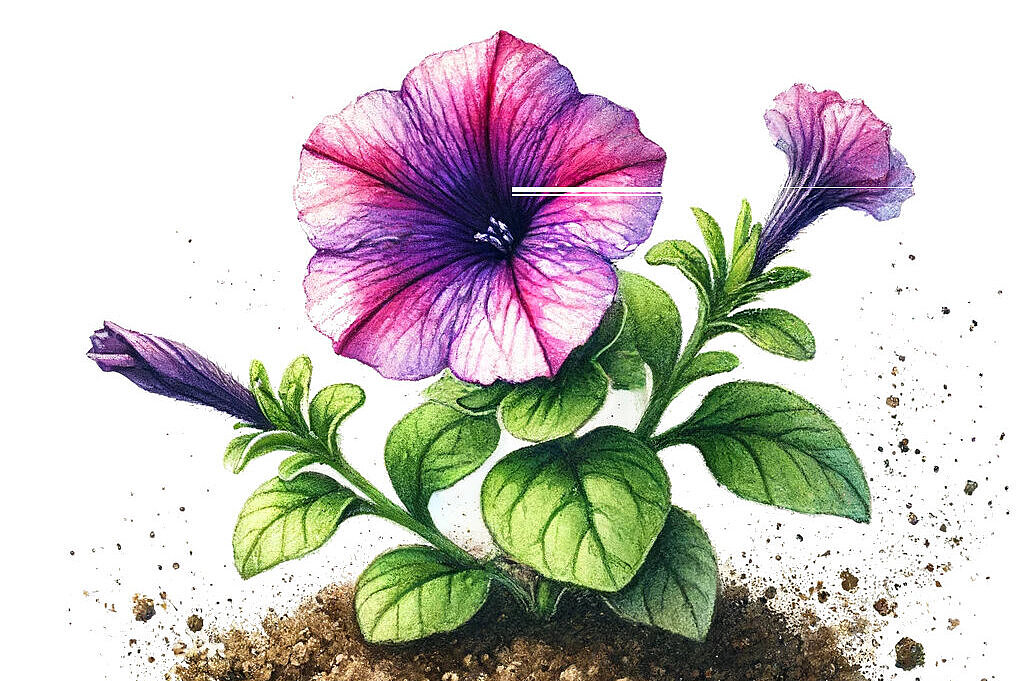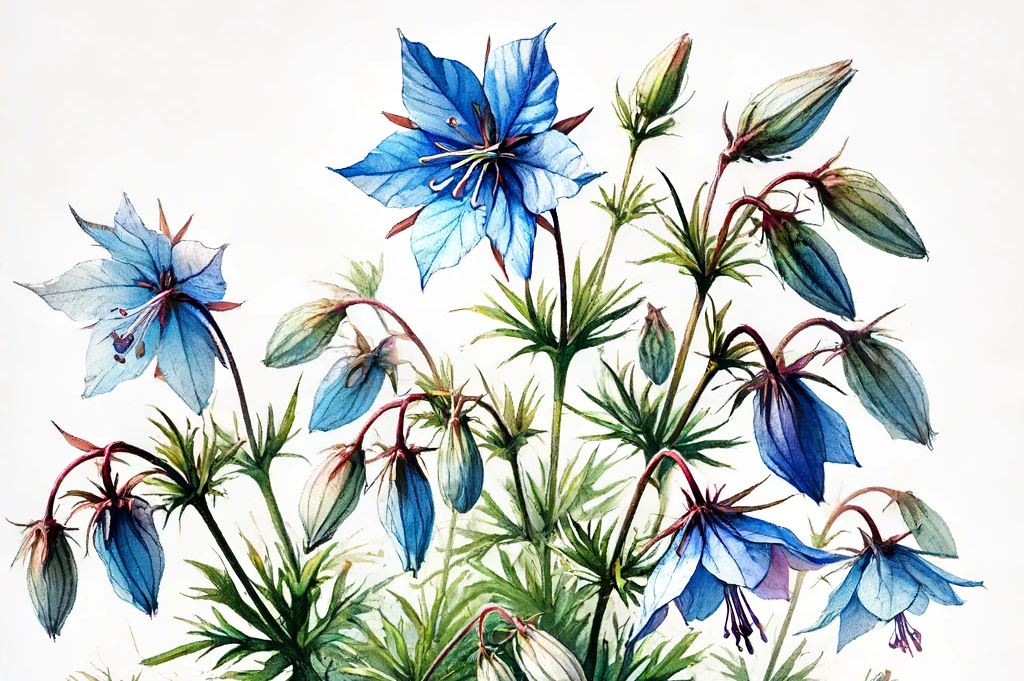Fuchsias

What are fuchsias?
Fuchsias belong to the Onagraceae family and include over 100 species and thousands of varieties. These plants are particularly known for their unique flowers, which can appear in a variety of colors, including pink, purple, red and white. Fuchsias prefer a mild climate and thrive best in semi-shady locations, making them ideal candidates for garden beds and hanging baskets.
Advantages of fuchsias near dogs
Aesthetic enrichment with no known toxicity
A significant advantage of fuchsias is that they are generally considered non-toxic to dogs. Their presence in the garden or on the balcony therefore poses no direct health risk to our four-legged friends, making them a safe choice for households with dogs.
Variety and beauty
The variety and beauty of fuchsias can have a calming effect on people and potentially pets too. Incorporating such colorful plants into the home environment can enhance overall well-being and create a pleasant atmosphere for all occupants.
Disadvantages: Considerations for the dog owner
Potential gastrointestinal irritation
Although fuchsias are not considered poisonous, in rare cases eating parts of the plant can cause mild gastrointestinal irritation in dogs. Symptoms such as mild vomiting or diarrhea are possible if a dog eats large quantities of the plant.
Danger from pesticides
As with many garden plants, the greatest danger to dogs is often the use of pesticides. Chemicals used to control pests and diseases can be harmful to pets if they come into contact with the treated plant.
Handling fuchsias: A blooming paradise, safe for your dog
To safely integrate fuchsias near dogs, follow these guidelines:
- Place fuchsias where they are difficult for your dog to reach if he tends to chew on or eat plants.
- Use pet-friendly pesticides and fertilizers to minimize the risk of harmful exposure.
- Monitor your dog for signs of intolerance and consult a vet if in doubt.
Fuchsias, a safe splendor for four paws
Fuchsias offer a wonderful way to add color and variety to the garden without posing a significant risk to our dogs. With the right precautions, these plants can be a safe and aesthetically pleasing addition to any household. The harmonious coexistence of fuchsias and dogs in our living environment underscores the joy and well-being that nature has to offer, making our everyday lives a bit more colorful and livable.
If you notice any signs of hypersensitivity or poisoning in your dog, you should see your vet immediately. We are not a substitute for a vet, but we try to be as accurate as possible. Every dog reacts differently and we recommend you get a second opinion or consult your vet if in doubt.
Stay healthy and take good care of your four-legged friend!😊
Similar to Fuchsias
Pelargoniums belong to the Geraniaceae family and are closely related to geraniums, although they are classified in different genera due to different botanical characteristics. They are particularly...
Begonias are members of the Begoniaceae family, an extensive genus of plants with over 1,800 different species. These plants vary greatly in size, leaf shape and flower color, making them a popular...
Petunias are among the most popular flowers for summer beds, balcony boxes and hanging baskets. They originate from South America and belong to the nightshade family (Solanaceae), which also...
Lobelias belong to the Lobeliaceae family and include a variety of species, from annuals to perennials and even small shrubs. They are known for their vibrant flowers, which range in color from deep...



